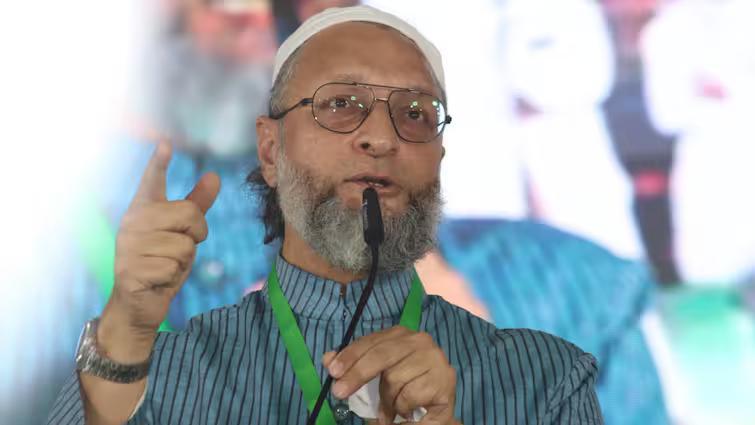
Pak acted like ISIS, India won’t sit quietly: Owaisi on J&K attack
The recent terror attack in Pahalgam, Jammu and Kashmir, that left 26 people dead, has sent shockwaves across the country. The attack, which was carried out by terrorists from Pakistan, has once again highlighted the need for a strong and effective response to combat terrorism. In a recent statement, AIMIM chief Asaduddin Owaisi has said that Pakistan acted like the terrorist organization ISIS, and India will not sit quietly after such attacks.
Owaisi’s comment comes amidst rising tensions between India and Pakistan, with both countries accusing each other of sponsoring terrorism. The Pahalgam attack was carried out by terrorists from Pakistan, who infiltrated into India and launched the attack. The attack has been widely condemned by politicians and citizens alike, with many calling for a strong response from the government.
Speaking to the media, Owaisi said, “Pakistan acted like ISIS. If they enter a country and kill innocent people, that country will not sit quietly.” He added that Pakistan’s budget is not even equal to India’s military budget, and therefore, it is not possible for India to sit quietly after such an attack.
Owaisi’s comment is significant because it highlights the need for a strong and effective response to combat terrorism. The Pahalgam attack was a brutal and cowardly act, and it is essential that the government takes steps to prevent such attacks in the future.
The attack in Pahalgam is not the first time that Pakistan has sponsored terrorism in India. There have been numerous instances of Pakistan-backed terrorism in India, including the Mumbai attacks in 2008 and the Pathankot attack in 2016. In each of these instances, Pakistan has denied any involvement, but evidence has consistently pointed to Pakistan’s involvement.
The Pahalgam attack is a stark reminder of the threat of terrorism that India faces, and the need for a strong and effective response to combat it. The government has taken several steps to prevent terrorism, including increasing the deployment of security forces in Jammu and Kashmir and implementing stricter surveillance measures.
However, despite these efforts, terrorism remains a major threat to India’s national security. The Pahalgam attack has once again highlighted the need for a comprehensive strategy to combat terrorism, including diplomatic efforts to isolate Pakistan and military measures to prevent terrorist infiltration.
Owaisi’s comment also highlights the need for a strong and effective response to combat terrorism. The Pahalgam attack was a brutal and cowardly act, and it is essential that the government takes steps to prevent such attacks in the future.
In conclusion, the Pahalgam attack is a stark reminder of the threat of terrorism that India faces, and the need for a strong and effective response to combat it. The government has taken several steps to prevent terrorism, but more needs to be done to prevent such attacks in the future.






